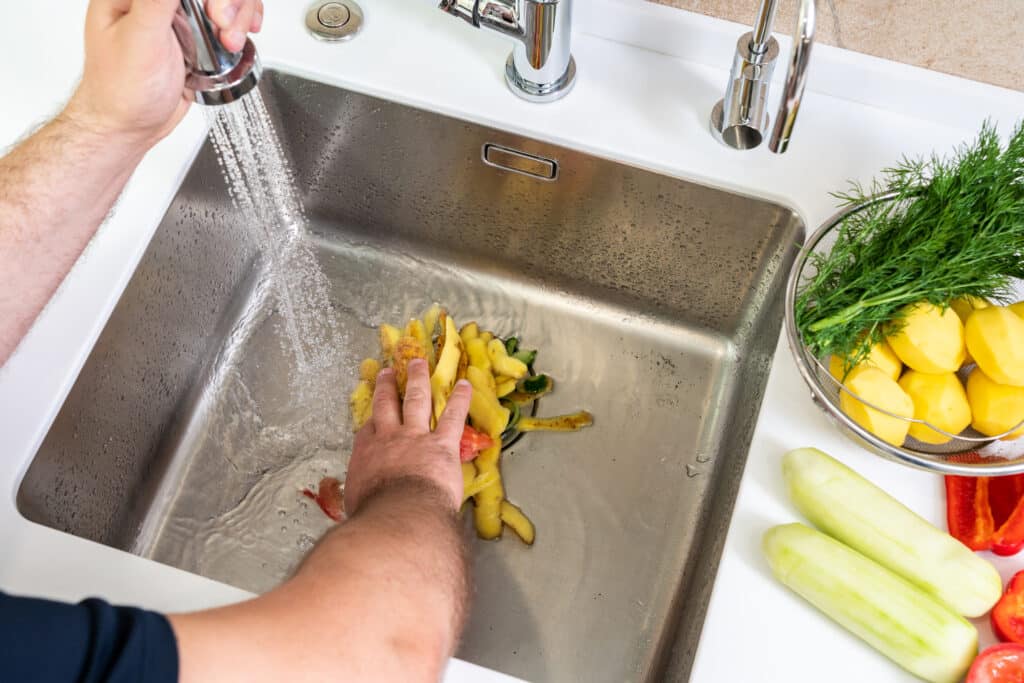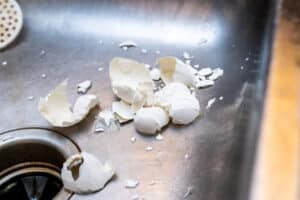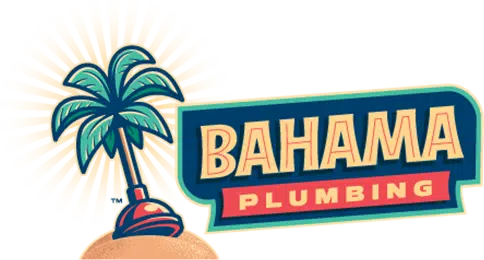
Clogged Kitchen Sink? Avoid These Common Holiday Mistakes
The holiday season brings joy, festivity, and, unfortunately, a clogged kitchen sink more often than not. In the hustle of preparing lavish meals, many overlook the impact of grease, food scraps, and other debris on their plumbing. This common oversight can lead to significant inconvenience, especially when hosting family gatherings. Recognizing the pitfalls and adopting better habits can ensure your celebrations in Mansfield remain uninterrupted by plumbing woes.
One prevalent mistake is treating the kitchen sink as a catch-all for cooking waste. Whether it’s grease from a turkey roast or peels from holiday potatoes, these materials can solidify and block pipes. Residents in Kennedale have experienced the frustration of a clogged kitchen sink, often at the least opportune moments. Simple practices, like disposing of grease properly and using a compost bin for organic waste, can make a huge difference.
Another error is the excessive reliance on garbage disposals. While they are helpful, they’re not invincible. Hard items like bones or fibrous materials like celery can jam or damage the disposal unit, leading to clogs. In Waxahachie, plumbers often remind homeowners to be mindful of what goes down the sink to avoid unnecessary calls for repairs.
Lastly, neglecting regular maintenance is a surefire way to encounter a clogged kitchen sink. A little prevention goes a long way, regular flushing with hot water or a vinegar-baking soda mix can keep your drains clear. By avoiding these common mistakes, Mansfield residents can enjoy their holiday festivities without the added stress of plumbing problems.
The Role of Holiday Cooking in Clogged Kitchen Sinks
Holiday cooking significantly contributes to the likelihood of a clogged kitchen sink, especially when festive meals are on the menu. The abundance of fats, oils, and grease from holiday favorites can overwhelm even the most diligent homeowner’s plumbing system. In Kennedale, families often gather for large feasts, increasing the amount of cooking waste that ends up down the sink. It’s crucial to remember that these substances can solidify in your pipes, causing stubborn blockages.
The allure of convenient disposal methods can also play a role in kitchen sink clogs during the holidays. Many people believe that running water alongside food scraps will prevent clogs. However, this is not the case, especially with oil and grease that can stick to pipes and accumulate over time. In Waxahachie, it’s common advice among plumbers to avoid letting any type of grease go down the drain, advocating instead for it to be thrown away in the trash.
Moreover, the holiday season often sees an increase in certain types of food waste that are particularly challenging for kitchen sinks. Items like poultry skins, vegetable peels, and coffee grounds are notorious for causing clogs. These materials can escape garbage disposal blades and gather in pipes, leading to a clogged kitchen sink. Adopting the habit of disposing of these items in the trash or a compost bin can save a lot of trouble.
Lastly, the festive season’s busy nature can lead to overlooked maintenance routines that are vital for preventing clogs. Regularly cleaning your sink with hot water or a mixture of vinegar and baking soda can maintain a clear flow. Such simple preventive measures can be the difference between a smooth holiday season and one marred by plumbing issues. Remember, a little attention to your kitchen sink now can prevent a clogged kitchen sink later, ensuring your holiday celebrations are uninterrupted by unexpected plumbing problems.
Mistake 1: Pouring Grease Down the Sink
Pouring grease down the sink is a common but harmful practice, especially during the holiday season. When hot, grease seems harmless and liquid, but as it cools, it solidifies, leading to a clogged kitchen sink. This problem isn’t just a nuisance, it can also lead to costly repairs. Mansfield homeowners can avoid this by disposing of grease in a container and throwing it in the trash.
Many people believe that mixing grease with hot water and dish soap is enough to prevent clogs. However, this method doesn’t stop grease from sticking to the pipes further down the line. Over time, this buildup can cause significant blockages, impacting the entire plumbing system. Instead, let grease cool and scrape it into the trash to keep sinks clear.
In Kennedale, the festive cooking frenzy increases the risk of grease-related clogs. Residents should remember that no amount of hot water can combat solidified grease in pipes. A simple change in disposal habits can save a lot of trouble and keep the kitchen sink running smoothly. By being mindful of how they dispose of grease, homeowners can prevent the headache of a clogged kitchen sink.
Finally, Waxahachie plumbers often stress the importance of proper kitchen waste management during the holidays. By avoiding the sink for grease disposal, families can enjoy their celebrations without plumbing disruptions. Adopting these practices not only prevents clogs but also protects the environment by reducing harmful waste. With a little effort, keeping your kitchen sink unclogged is an achievable goal during the busy holiday season.

Mistake 2: Disposing of Coffee Grounds and Eggshells Improperly
Disposing of coffee grounds and eggshells in the sink is another mistake that leads to a clogged kitchen sink. Many people in Kennedale assume that these items will simply grind up and wash away. However, coffee grounds tend to clump together and eggshells can create sharp, hard fragments. These can stick to grease and other debris, forming a blockage in your pipes.
Instead of using the sink, a better practice is to throw coffee grounds and eggshells in the trash or compost bin. This simple change in habit can significantly reduce the risk of a clogged kitchen sink. In Mansfield, adopting eco-friendly waste disposal methods also contributes to a healthier environment. By keeping such materials out of the plumbing system, you prevent potential clogs and protect your home’s pipes.
For those who have relied on the garbage disposal, it’s crucial to understand its limitations. In Waxahachie, plumbers often find that disposals are misused, leading to unnecessary plumbing emergencies. They are not designed to handle materials like coffee grounds or eggshells efficiently. Recognizing this can save you from the inconvenience of a clogged kitchen sink during the holiday season.
Lastly, regular maintenance is key to avoiding a clogged kitchen sink. Flushing your sink with hot water after use can help, but avoiding problematic waste is more effective. By being mindful of what goes down your drain, you can enjoy the holidays without plumbing issues. Remember, a little prevention goes a long way in keeping your kitchen sink clear.
How to Properly Dispose of Oily Substances
When it comes to dealing with oily substances, many Mansfield residents might not realize the trouble they’re inviting into their homes. Pouring oil down the drain seems like a quick fix, but it’s a direct route to a clogged kitchen sink. Instead, cool the oil and pour it into a disposable container, then throw it in the trash. This simple step can drastically reduce the risk of blockages and keep your plumbing healthy.
In Kennedale, the festive season tempts many to take shortcuts in kitchen cleanup, especially with oils and fats. However, these substances can wreak havoc on residential plumbing systems. A better approach is to wipe pans with a paper towel to remove oil before washing them. This method ensures that less oil goes down the drain, preventing a clogged kitchen sink and saving on future plumbing bills.
Waxahachie residents should also be aware of the environmental impact of improper oil disposal. By finding alternative disposal methods, such as using oil in compost or taking it to a recycling center, they contribute to a healthier planet. Not only does this practice keep sinks clear, but it also promotes sustainability and reduces waste in landfills.
Lastly, educating family and friends on the importance of proper disposal can amplify the benefits. Sharing tips and tricks for dealing with oily substances helps spread good habits throughout the community. By working together, everyone can play a part in avoiding a clogged kitchen sink, ensuring a smoother holiday season and beyond.
The Importance of Regular Drain Maintenance
Understanding the significance of regular drain maintenance is crucial in preventing a clogged kitchen sink, a common issue during the holiday season. By scheduling routine checks, homeowners can identify potential problems before they escalate. This proactive approach not only saves Mansfield residents from the inconvenience of a clogged kitchen sink but also from the high costs associated with emergency plumbing repairs.
In Kennedale, incorporating simple habits such as running hot water down the sink after washing dishes can significantly reduce the risk of blockages. This method helps to dissolve and flush away any residual oils or fats that might cling to the pipes. As a result, the likelihood of facing a clogged kitchen sink decreases, ensuring a smoother and more enjoyable holiday cooking experience.
Another effective strategy is the use of natural cleaners like baking soda and vinegar to maintain clear drains. This combination creates a fizzing action that can help to dislodge any buildup in the pipes. Residents in Waxahachie have found this eco-friendly solution not only effective in preventing a clogged kitchen sink but also safe for their plumbing systems and the environment.
Lastly, educating oneself on what should not go down the drain is essential. Avoiding the disposal of grease, coffee grounds, and other clogging agents can greatly minimize the chances of a blockage. By adhering to these maintenance tips, homeowners can enjoy their holiday festivities without the worry of a clogged kitchen sink disrupting their celebrations.
Mistake 3: Overloading the Garbage Disposal
Overloading the garbage disposal is a common mistake that leads to a clogged kitchen sink during the holiday season. Many people in Kennedale underestimate how much their disposals can handle, throwing in large quantities of food scraps at once. This not only strains the system but also contributes to blockages. It’s better to dispose of bulk waste in the trash or compost bin to avoid this issue.
Another aspect often overlooked is the type of food being put into the disposal. Waxahachie residents should remember that not all food waste is disposal-friendly. Hard, fibrous, or starchy items can cause serious jams and clogs. By being selective about what goes down the drain, homeowners can significantly reduce the risk of a clogged kitchen sink.
Regular cleaning of the garbage disposal is also crucial in preventing clogs. Running cold water through the disposal after each use helps clear out any remaining food particles. This simple habit keeps the blades sharp and the system running smoothly, warding off potential blockages.
Lastly, it’s important to listen to your disposal. If it sounds different or is less efficient, it might be time for a check-up. Ignoring these signs can lead to a clogged kitchen sink, disrupting your holiday festivities. Taking action at the first sign of trouble can save you from bigger issues down the line.
Clogged Kitchen Sink Prevention Tips
To prevent a clogged kitchen sink, one effective method is to invest in a high-quality sink strainer. This simple tool catches food particles and debris, preventing them from entering your plumbing system. Residents in Kennedale have found that regular cleaning of the strainer can significantly reduce the risk of blockages. It’s a small step that can make a big difference in keeping your sink clear.
Another important tip is to be cautious with what you pour down the drain. In Waxahachie, many have adopted the practice of disposing of oil and grease in a container rather than washing it down the sink. This habit helps avoid the buildup of substances that can lead to a clogged kitchen sink. By following this practice, you can maintain a smoother flow in your plumbing.
Regularly flushing your drain with hot water can also prevent clogs. After each use, pouring a kettle of boiling water down the sink helps dissolve and dislodge any potential clog-causing materials. This method is especially useful for dissolving fat residues that may have escaped the strainer. It’s an easy, yet effective way to keep your pipes clean.
Lastly, scheduling an annual professional inspection can catch issues before they lead to a clogged kitchen sink. A plumber can identify and address any potential problems, such as minor clogs or buildup, before they become major issues. This proactive approach ensures that your plumbing system remains in top condition, allowing you to enjoy the holiday season without unexpected plumbing problems.

Professional Solutions for a Clogged Kitchen Sink
When facing a clogged kitchen sink, many homeowners in Kennedale turn to professional plumbing services for a swift and effective solution. These experts have the tools and knowledge to tackle even the most stubborn blockages. By using specialized equipment, such as drain snakes and high-pressure water jets, plumbers can clear your pipes without causing damage. This approach not only resolves the immediate problem but also helps prevent future clogs.
In Waxahachie, preventive maintenance plans offered by plumbing companies are becoming increasingly popular among residents looking to avoid a clogged kitchen sink. These plans typically include regular inspections and cleanings, which can identify and address potential issues before they escalate. Investing in such services can save you from the inconvenience and expense of emergency plumbing repairs. It’s a practical way to keep your kitchen sink running smoothly throughout the holiday season and beyond.
Another professional solution is the installation of more advanced garbage disposal units and sink strainers designed to minimize the risk of a clogged kitchen sink. Plumbers can recommend and install models that are better suited to handle the volume and types of waste common in household kitchens. Upgrading to a more efficient system can significantly reduce the likelihood of clogs, offering peace of mind to homeowners during busy cooking periods.
Lastly, educating homeowners on proper sink usage and maintenance plays a crucial role in preventing a clogged kitchen sink. Professionals often provide valuable advice on how to dispose of fats, oils, and grease correctly, as well as tips for keeping drains clear. By following these guidelines, residents can maintain a clog-free kitchen sink, ensuring their holiday festivities are not interrupted by plumbing issues.
Frequently Asked Questions
What causes a Clogged Kitchen Sink?
A clogged kitchen sink often results from holiday cooking habits. Grease and food scraps poured down the drain lead to blockages. Improper disposal of leftovers and not using sink strainers also contribute. These practices can quickly turn festive preparations into a plumbing nightmare.
How can I prevent sink clogs during holidays?
To prevent sink clogs during the holidays, start by disposing of grease and food scraps in the trash, not the sink. Use a sink strainer to catch any remaining particles before they go down the drain. Running hot water after each use can also help keep the pipes clear. Lastly, consider regular drain cleaning to maintain a clog-free kitchen sink throughout the festive season.
What should not go down the kitchen sink?
Certain items should never find their way down your kitchen sink to avoid a clogged kitchen sink. Grease, coffee grounds, and eggshells can create stubborn blockages in your pipes. Additionally, fibrous foods like celery and onion skins can wrap around the blades of garbage disposals, causing malfunctions. Always remember, keeping these items out of your sink will help maintain smooth plumbing during the holiday season and beyond.
Are chemical cleaners safe for a Clogged Kitchen Sink?
Using chemical cleaners for a clogged kitchen sink might seem like a quick fix, but it’s not always safe. These cleaners can harm your plumbing over time, leading to more serious issues. Instead, opt for gentler methods to clear the blockage. This approach protects your pipes and keeps your kitchen running smoothly.
Can hot water fix sink blockages?
Pouring hot water down your sink might seem like an easy solution for a clog. However, this method often falls short when dealing with solid blockages caused by grease and food scraps. It’s better to use a plunger or a plumber’s snake for tougher clogs. These tools are more effective in clearing out the pipes and keeping your kitchen sink flowing smoothly.
